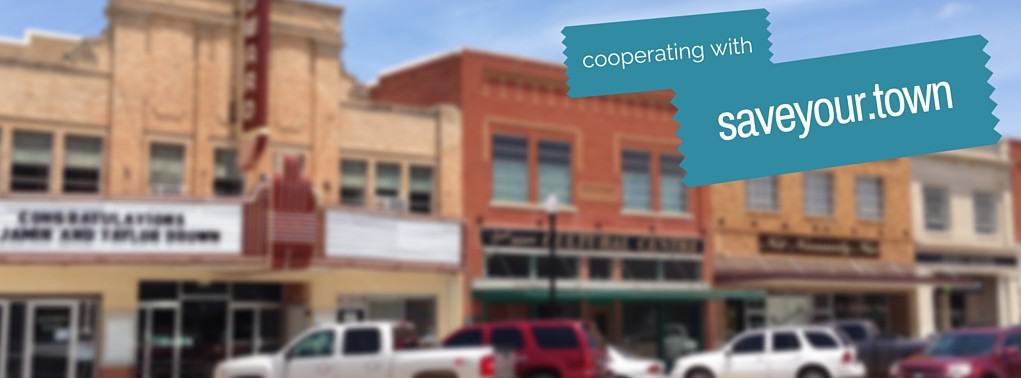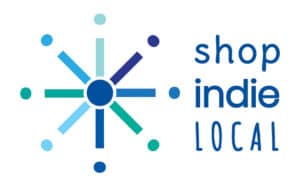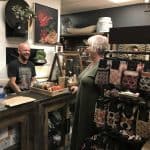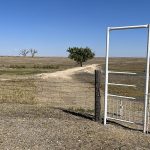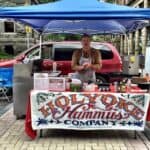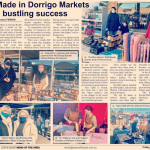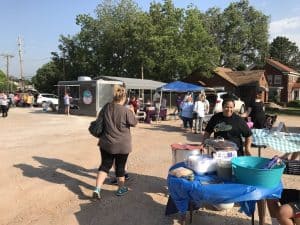
We tried it once. Does that mean we can never try it again? Photo by Becky McCray.
Guest Post by Paula Jensen
When was the last time you heard someone say, “We tried that before and it didn’t work!” In my early days as a local leader those words spoken by an experienced leader often stopped me in my tracks. Their words indicated to me that they had the experience of knowing what worked and what didn’t work in the community. Sometimes I would ask, “Why?” and rarely get a strong explanation about the failure that occurred, which left me determined to learn more.
My confidence as a leader has grown over the years and I have gained much more experience. Now when someone says, “We tried that before and it didn’t work!” my response is…”and, what did you learn from that?”
Learning about failed attempts, missed opportunities, and community history requires honest and focused conversations with local leaders. I strongly believe that as current leaders, we must know the history of things tried in our community, the work that has been accomplished and why decisions were made. So often, the reason history repeats itself is that leaders don’t own their part in the community’s history. We must look back and own our part of history to move ahead.
Let’s begin by asking a question – How do we start an honest and focused conversation with community leaders about what has been learned in our past?
4 Steps to Learn from “We Tried That Once!”
There is an art to initiating and carrying out a conversation that creates positive results. Here is a 4-step method that enables your conversation to flow from surface to depth. You can lead this conversation through a series of questions at these four levels:
- Step 1. Objective Level – Begin with the data, facts, and external reality. Ask your conversation participant(s), “What did you actually see, hear or read?” or “What surprised you?”
- Step 2. Reflective Level – Next, ask for immediate personal reactions, internal responses, emotions or feelings, hidden images, and associations with the facts you discussed in step one. Ask your conversation participant(s), “What was your gut reaction?” or “What were your biggest frustrations?” or “What has worked well?”
- Step 3. Interpretive Level – Then, draw out meaning, values, significance, and implications. Ask your conversation participant(s), “What are your hopes and dreams?” or “What would you say were your most significant contributions?”
- Step 4. Decisional Level – Lastly, bring the conversation to a close, seeking resolution and enabling the participants to make decisions about the future. Ask your conversation participant(s), “What do you think we should do?” or “What steps could we take to move forward?” or “Who else should be involved in local leadership?”
The results of focused conversations can help develop awareness to accept the things that have been done in the past and follow the lessons learned from each situation to move our work forward. When a leader starts asking “How can we learn from this?”, automatically it affects the future of the community. Having focused conversations is a transformational process that starts with one person wanting to learn more and ends with moving toward a more positive future by learning from the past.
As a local leader I want to empower younger generations to take their ideas and act on them. I want to be asked about successes and failures from the past. And lastly – I, Paula Jensen, vow to never say the words, “We tried that before and it didn’t work!” #Iamrural
- About the Author
- Latest by this Author
The Community Coach. Having a passion for community leadership and development is what drives Paula Jensen’s personal and professional life. Paula lives in her hometown of Langford, South Dakota, population 318+. She serves as a Strategic Doing practitioner, grant writer and community coach with Dakota Resources based in Renner, South Dakota. Dakota Resources is a mission-driven 501c3 Community Development Financial Institution working to connect capital and capacity to empower rural communities. Contact her at paula@dakotaresources.org.
